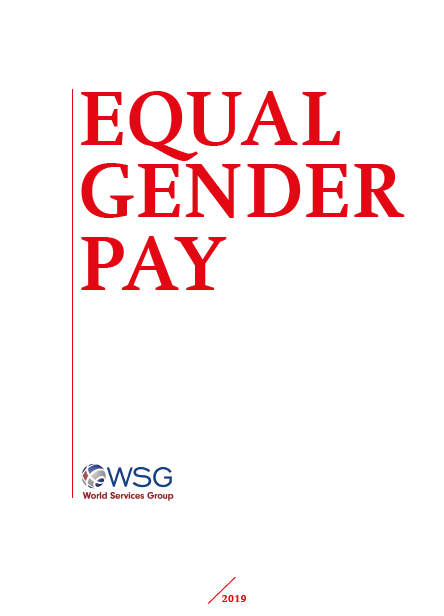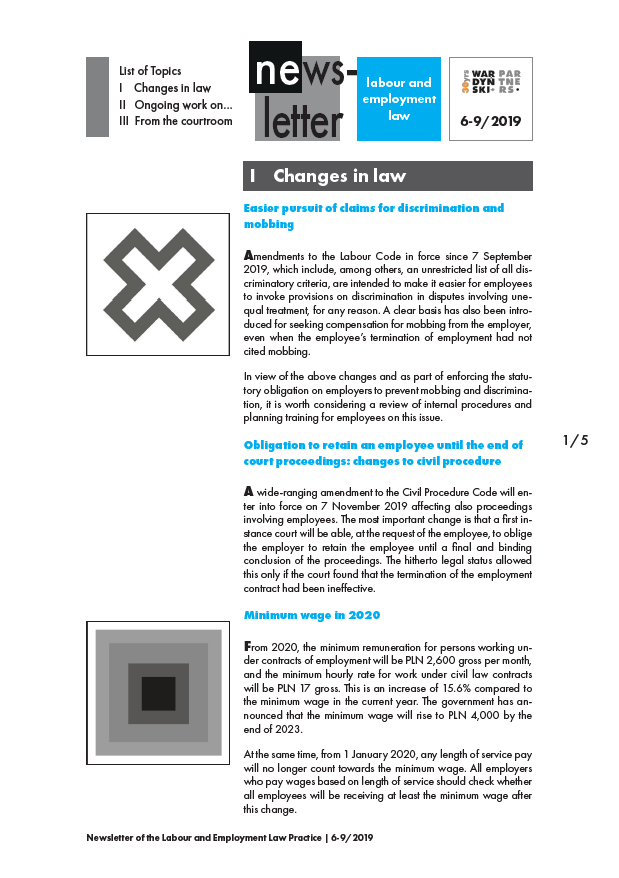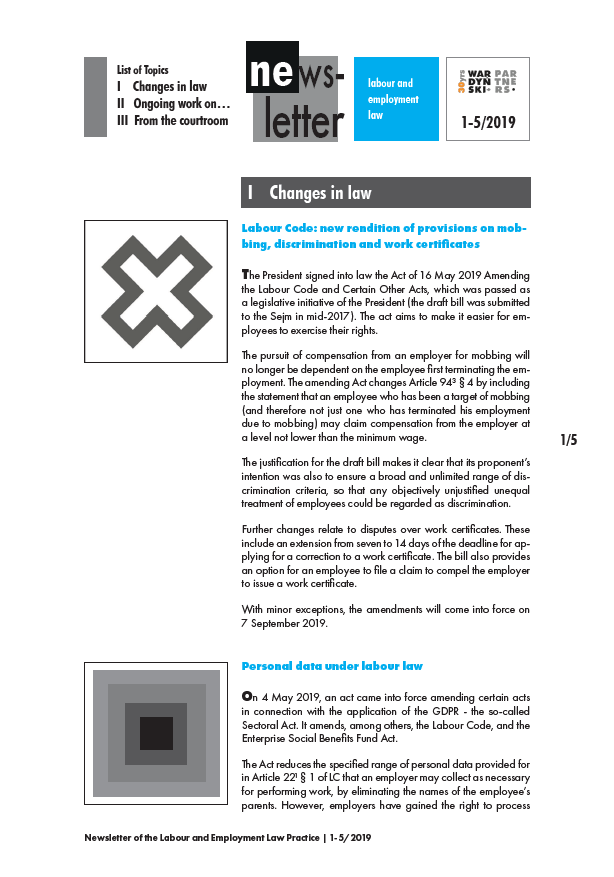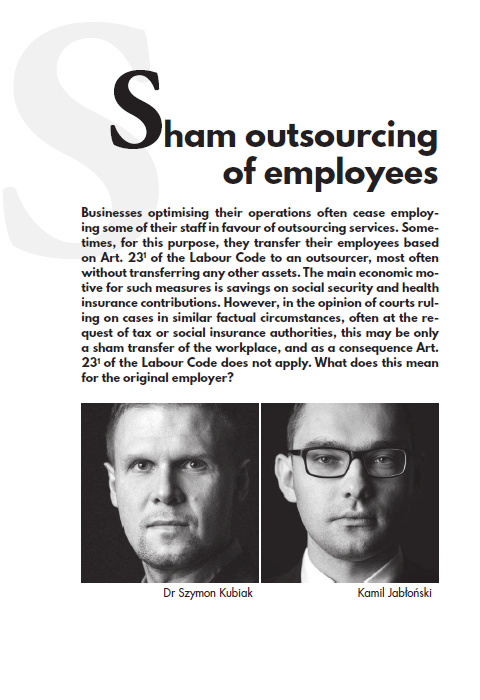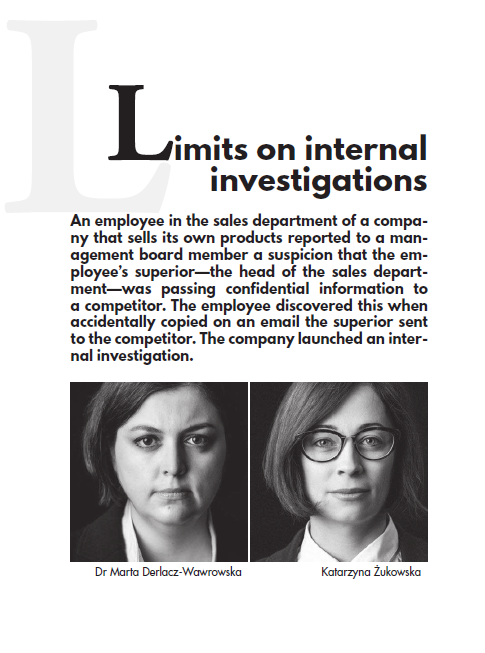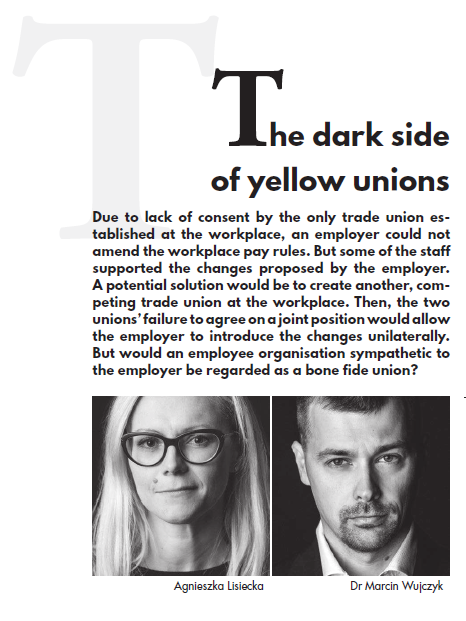publications
Gender pay equality is a fundamental right embedded in the EU Treaty and in numerous European Directives. Yet, this right is not yet a reality. Women still earn less than men across Europe and are under-represented in decision-making positions. Many European countries have taken initiatives to address this inequality in pay. This booklet covers 20 countries in Europe and sets out figures and trends, the legal framework on gender pay equality, the sanctions for the employer and the means of action for the employee in the event of any violation of the equal pay legislation.
Agnieszka Lisiecka
Businesses optimising their operations often cease employing some of their staff in favour of outsourcing services. Sometimes, for this purpose, they transfer their employees based on Art. 231 of the Labour Code to an outsourcer, most often without transferring any other assets. The main economic motive for such measures is savings on social security and health insurance contributions. However, in the opinion of courts ruling on cases in similar factual circumstances, often at the request of tax or social insurance authorities, this may be only a sham transfer of the workplace, and as a consequence Art. 231 of the Labour Code does not apply. What does this mean for the original employer?
Dr Szymon Kubiak, Kamil Jabłoński
An employee in the sales department of a company that sells its own products reported to a management board member a suspicion that the employee’s superior—the head of the sales department—was passing confidential information to a competitor. The employee discovered this when accidentally copied on an email the superior sent to the competitor. The company launched an internal investigation.
Dr Marta Derlacz-Wawrowska, Katarzyna Żukowska
Due to lack of consent by the only trade union established at the workplace, an employer could not amend the workplace pay rules. But some of the staff supported the changes proposed by the employer. A potential solution would be to create another, competing trade union at the workplace. Then, the two unions’ failure to agree on a joint position would allow the employer to introduce the changes unilaterally. But would an employee organisation sympathetic to the employer be regarded as a bone fide union?
Agnieszka Lisiecka, Dr Marcin Wujczyk
